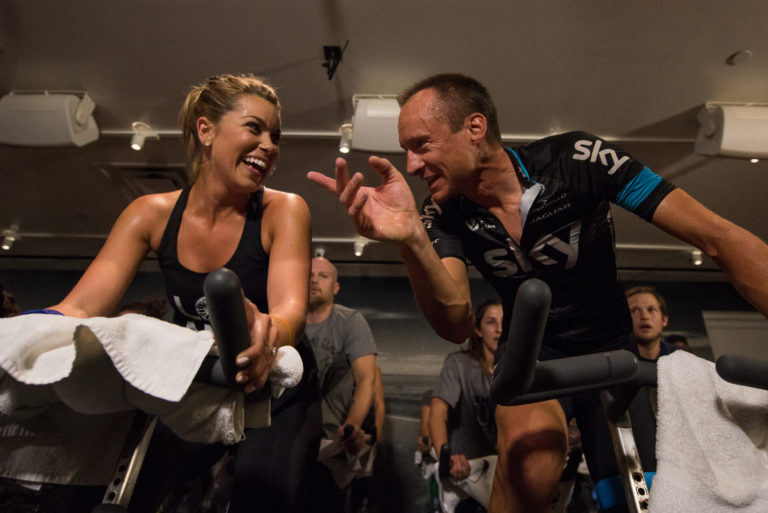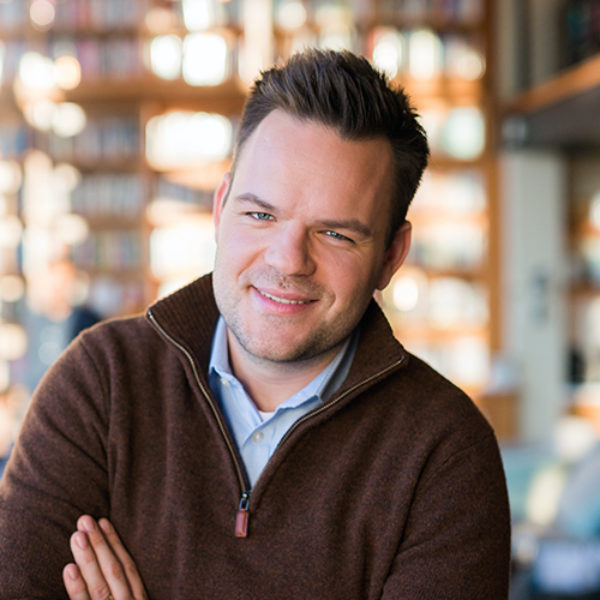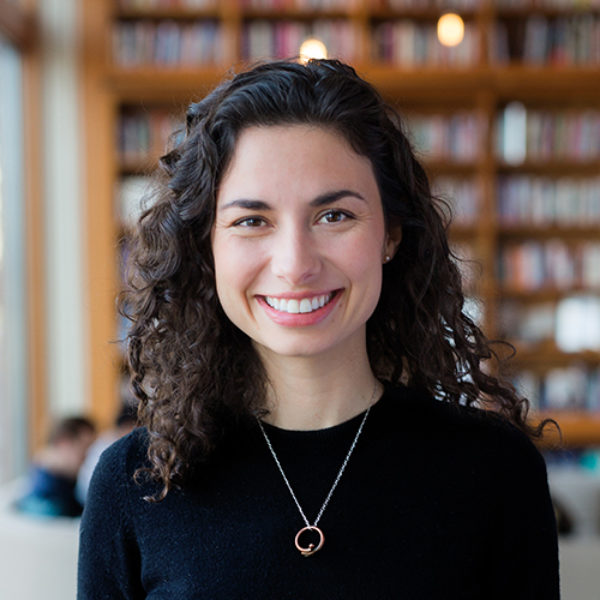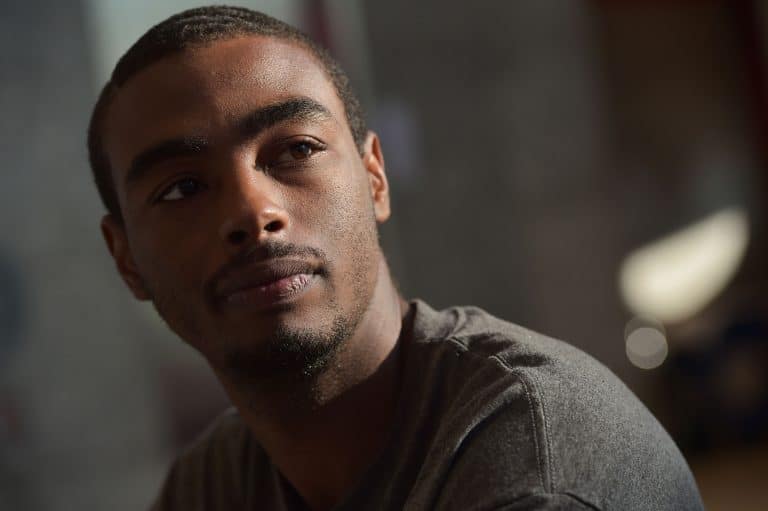
Image by Jonathan Moore/Getty Images, © All Rights Reserved.
How We Gather (Part 2): SoulCycle as Soul Sanctuary
Since its founding in 2006, much has been written about SoulCycle, the indoor cycling phenomenon with the motto “Find Your Soul.” Commentary runs the gamut from popular parodies to scathing critiques to overt comparisons to church. But little inquiry has been made into the experience of meaning and belonging that people actually find there.
Take Keith Washington, who rides in the Castro, famously one of the first gay neighborhoods in the United States:
“SoulCycle in the Castro is a really special place for me. It’s a place to feel safe as a gay person and safe in my body in a room with my people.”
But it’s also more than that. For Washington, who grew up in an African-American Southern Baptist church, worship comes with a cadence of “mms” and “amens.” He says he finds that at SoulCycle too. In fact, he never felt moved to respond in church — but he does at SoulCycle.
Luigi Aldon, Washington’s instructor, can attest to rider response:
“By the end they are screaming for each other, screaming each other’s names. This is about something bigger than ourselves. Something bigger than sweating and losing weight and burning calories. As an instructor, I get them to a point where they are so tired that emotionally they are so much more vulnerable. They no longer rely on their physical strength; they have to go deeper. That is when the experience becomes more than a workout.”
Certainly, a kind of embodied catharsis — even healing — can happen at SoulCycle. Most studios open in wealthy neighborhoods where they particularly draw young women and mothers who can afford the -plus price tag. In the darkened “soul sanctuary,” for 45 minutes, these riders get to drop the manicured front they so assiduously maintain. Many compare it to therapy, or say it’s better than therapy. There is even a documented phenomenon of crying in the studio.
Echoes of Evangelical and Pentecostal worship are clear, but is SoulCycle actually worship?
That is a question for Angela Davis, famed as Oprah’s SoulCycle instructor and, more recently, as the subject of a lawsuit over an injury in her class, which is known for its physical and emotional rigor. Davis, a former track star and graduate of Oral Roberts University, the evangelical Christian university in Tulsa, is unequivocal about doing God’s work on the bike. At a recent class in her West Hollywood studio, Davis invoked miracles, angels, and faith in things not seen.
Every SoulCycle “journey” has a similar arc, which peaks during a hill ballad when riders turn up the resistance dial on their stationary bike and climb uphill in the dark. “Everything else is so cute,” Davis preached to the room of 50 sweaty riders.
“The hill is grimy. This is where you endure. Believe you can get through this. The way you do this one thing is the way you do all things.”

Davis uses her classes to “strengthen faith muscles,” offering an experience of peaks and valleys that imitate real life. For her, faith is in God. She wakes up each day and asks God to use her, so that people walk out of class having felt his love. But she also recognizes that the SoulCycle studio is for people of all faiths and none.
“This is about individual faith and spirituality. I give people room to make it about what they need.”
And they do. Davis’s classes sell out within five minutes. One rider said, “I don’t even like SoulCycle, but I come for her. It’s all about the instructor.”
For its part, the company goes a long way to promote a culture of instructor veneration. Rather than just fitness, SoulCycle hires for personality, sending a talent team from New York to hold auditions in different cities. These start with an American Idol-esque first round in which candidates have 30 seconds to get on a bike, pick their music, and show they have what it takes. As Aldon says, “You can train a monkey to ride a bike, but not everyone has that special spark that makes people want to take their class. That’s what they’re looking for.”
Instructors go through a ten-week Instructor Training Program in New York City and are then incentivized to fill their classes. In return, the company treats them like stars. As one rider described, “They could just say, ‘SoulCycle at 5, 6, and 7am.’ But instead they say, ‘Karen’s class, Luigi’s class, and Angela’s class.’”
SoulCycle breeds loyalty to both instructors and studios, putting out 12 unique clothing lines per year at each studio and using the instructors as models. “My favorite pair of shorts are my SoulCycle Castro shorts,” says Washington.
“You are unified; you are representing. If I ever ride in New York, I wear my San Francisco shorts just so they know.”
As one rider describes, the merchandise reifies the community, offering a way to show allegiance. Another factor is the culture of the front row: If you are good enough, you bike in front, which means you lead the pack and get more attention from the instructor. For competitive riders, the front row is a form of visibility and validation of status, reminiscent of how prominent families once paid for choice pews in American Protestant churches.
In all of this, SoulCycle becomes a place to meet and make friends. As Washington attests,
“It’s a place where you go and people know your name. I get messages from my instructor like, ‘Hey, the new Rihanna song came out. I’m gonna play it in class. I’ll save a bike for you.’”
As a result, SoulCycle is now a literal and figurative orienting point in Washington’s life, even influencing his decision to move into an apartment in the Castro. “I can never live anywhere where there’s not a SoulCycle,” he says. “It is more safe and more powerful than even church. I feel like I’m at home.”
On the Friday of Pride weekend, Aldon celebrated his one year anniversary of teaching in the Castro.
A year ago, that Friday marked the studio’s opening in a prominent building in San Francisco’s historic Harvey Milk Plaza. It also turned out to be the day the Supreme Court ruled on marriage equality.
As Washington remembers, the first song on Aldon’s class playlist was “Always Be My Baby” by Mariah Carey. “So many people started crying,” he says.
This year, in the wake of the mass shooting in a gay nightclub in Orlando, that Friday ride was no less emotional. Aldon says:
“The only way to acknowledge it was to talk about it. Fifty people have lost their voices and there was a point where I had to say it is your responsibility to speak for those people.”
He describes leading his pack of riders into the end of their 45-minute journey on the bike:
“We went in for the last two songs, and it’s Pride so I wanted to dedicate the first one to the people who fought for our right to love, and so I told a story about moving in with my boyfriend and telling my parents. And I said at one point in my life I would have been far too ashamed and would have kept it secret, but there was a group of people similar to you all in this room, who fought for our freedom and our right to love. I said you have the capacity, yourselves, to make a change in the world. Dedicate this first sprint to those people who stepped into that capacity. Then dedicate the second sprint to each other and the love we’ve created in this room. Because there are boyfriends and girlfriends and husbands and wives in here and love is love is love is love. Turn it up, reach down, and let the music drop.”

About How We Gather
America is changing. Millennials are less religiously affiliated than ever before. Churches are just one of many institutional casualties of the internet age in which young people are both more globally connected and more locally isolated than ever before. Against this bleak backdrop, a hopeful landscape is emerging. Millennials are flocking to a host of new organizations that deepen community in ways that are powerful, surprising, and perhaps even religious. With this monthly series, we invite you to join us in considering how Millennials are changing the way we gather:
»Part 1: The Theology of CrossFit
» Part 2: SoulCycle as Soul Sanctuary
» Part 3: The Dinner Party


